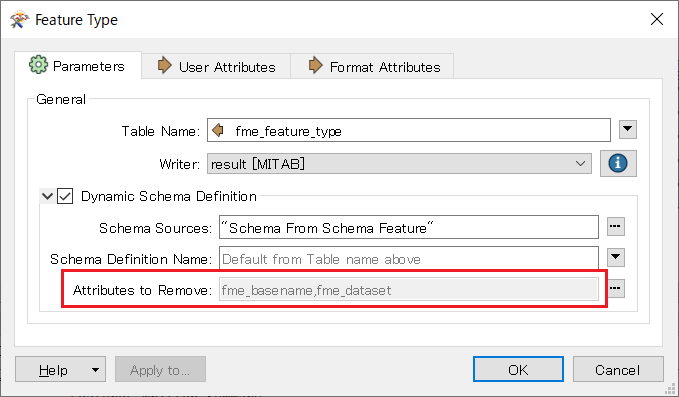fme_dataset and fme_basename attributes are there when read normally, but not when read with a FeatureReader.
Solved
Where are the fme_dataset and fme_basename attributes when reading with the FeatureReader?
Best answer by fmelizard
If you're trying to read any of these eleven formats with the FeatureReader then unfortunately the attributes fme_dataset and fme_basename are not added in FME 2017+:
CAT, DGNV8, DGNV8XFM, FMW, GG, MGE, NTX, SCHEMA_FROM_TABLE, SEGY, SPATIALWARE, STL
However, there is a workaround - insert
READER_META_ATTRIBUTES fme_feature_type fme_dataset fme_basename at the very top of the header (go to Tools/Edit Header... in Workbench).
If you find these attributes missing with any other format via the FeatureReader or the above work-around doesn't help then please let us know at https://www.safe.com/support/report-a-problem/ This problem is being tracked in FMEENGINE-62624.
This post is closed to further activity.
It may be an old question, an answered question, an implemented idea, or a notification-only post.
Please check post dates before relying on any information in a question or answer.
For follow-up or related questions, please post a new question or idea.
If there is a genuine update to be made, please contact us and request that the post is reopened.
It may be an old question, an answered question, an implemented idea, or a notification-only post.
Please check post dates before relying on any information in a question or answer.
For follow-up or related questions, please post a new question or idea.
If there is a genuine update to be made, please contact us and request that the post is reopened.

















